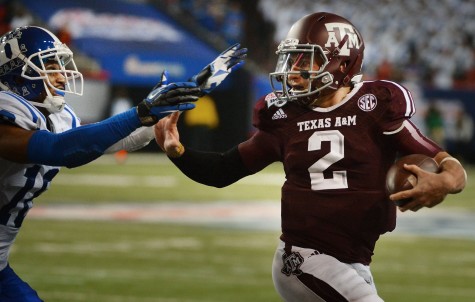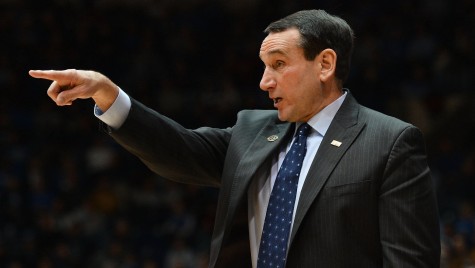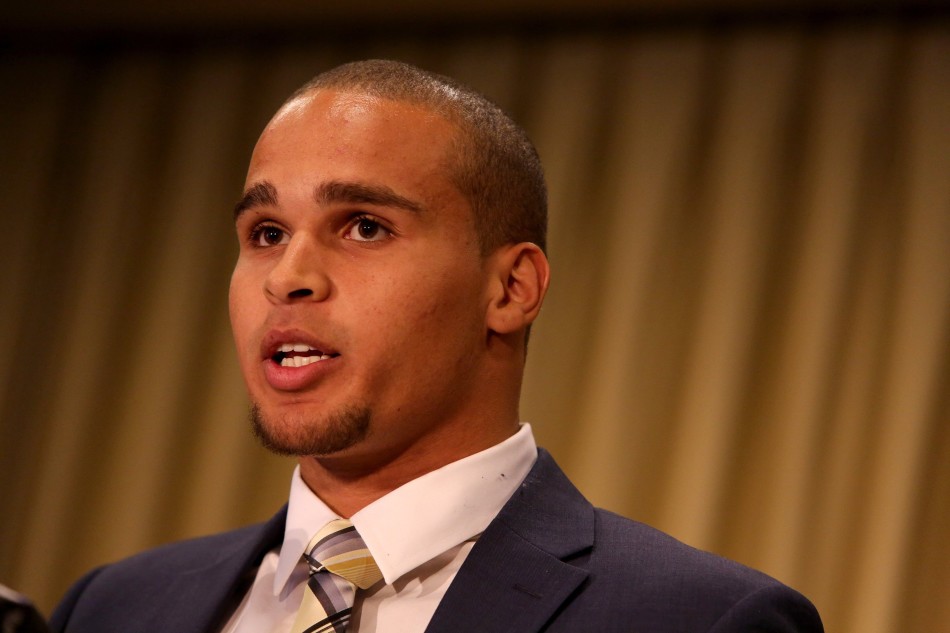NCAA Student-athletes being paid? It’s a possibility
Kain Colter, a star quarterback and receiver who completed his college football career in December, announces that several Northwestern football players wish to join a labor union during a press conference at the Hyatt Regency in Chicago on Tuesday, Jan. 28, 2014. (Courtesy of Antonio Perez/Chicago Tribune/MCT)
April 21, 2014
College sports have seen major transformations over the last decade. Conference realignments, social media, merchandising and advertising have shaped athletes all over the nation. With these forces, college athletics are not “just a game.” Should college athletes be paid?
The National Labor Relations Board determined that the football players at Northwestern University are employees of the university, not student-athletes as the NCAA claims. The players have the right to form a union and bargain over their working conditions. They will want to be paid, just like professional athletes. This case will probably advance to the Supreme Court in the near future.
No one disputes that, college sports have become a business. Universities will do virtually anything to bring in a star athlete who can draw in revenue for their campus. My perspective of paying college athletes is that it’s going to ruin college sports forever and it should not happen.
There are pros and cons of making athletes employees of the universities they attend. How will affect the athlete phenoms like Johnny Manziels and Andrew Wiggins of the future?

Putting “salary” and “student-athlete” in the same sentence sounds unappealing, but it could be beneficial for collegiate athletes. After all, the players are the ones putting on a show for the fans and bringing in revenue for their universities, and yet the players don’t get a share of the profits. If coaches, store owners, schools, and conferences profit from college football, then the players should, too. College coaches in my opinion are being way over paid as well. Duke Head basketball coach Mike Krzyzewski is set to make 7.2 million dollars this season. That’s 18-times more than what President Barack Obama will be making and 120-times more than an average Army officer makes annually, which to me is absurd. The NCAA is going to have to figure this out before making anything official.

Players receiving salaries could also reduce the chances of accepting “improper benefits” or under-the-table pay checks. Reggie Bush, a former college football player who played for USC from 2003 to 2005 violated NCAA policies by receiving over $290,000 in gifts from the university. Bush was then stripped of his 2005 Heisman Trophy and USC was banned from bowl games from the 2010-2011 seasons and also lost over 30 scholarships over a three-year span. A negotiated pay system would make a more equal paying field, reducing extra gifts to attract players.
If the NCAA does decide to pay players, then how will smaller schools and conferences afford this? Bigger conferences make more money than smaller conferences due to TV deals and merchandising. Why do you think Maryland left their rich tradition of rivalries in the ACC to join the Big-10? It will give them the opportunity to make more money and draw in big-time recruits.
Let’s face it. Football and men’s basketball are the programs that universities thrive on. So does that mean only those athletes will be paid? What about the other programs like lacrosse, baseball and soccer? How is the money going to be evenly distributed?
College athletes are already provided with a full-scholarship that could equal as much as $250,000 over four years. Colleges also provide players with medical care, top-notch coaching, room and board and a college degree.
And let’s not forget about women’s sports. Title IX (a federally-mandated law) states that if conferences and schools decide to increase the value of student-athlete scholarships, they have to do the same for women’s programs as well. Can colleges afford to pay all of these athletes?
The bottom line is that student-athletes shouldn’t be paid, period. An education is more valuable than their athletic ability. They put the student in student-athlete and belong to the universities that they attend and the problems with paying athletes out way the benefits substantially.



